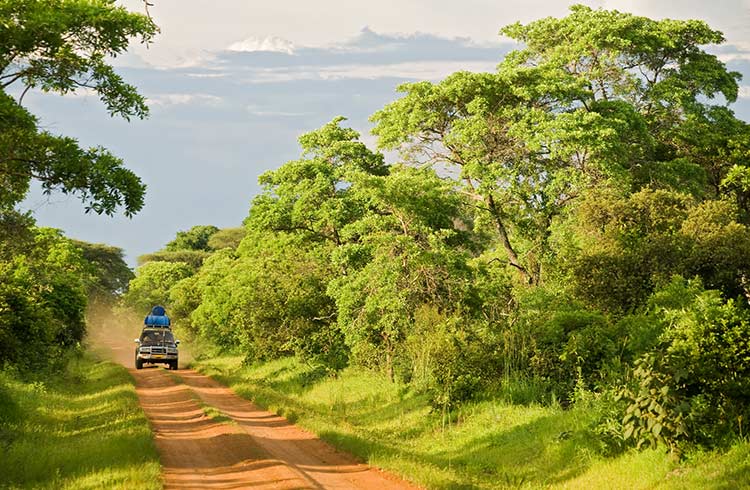Safe Transport in the Democratic Republic of Congo
Unreliable public transport and questionable air travel makes getting around the DRC difficult. This is what you need to know about transport before you go.
 Photo © Getty Images/guenterguni
Photo © Getty Images/guenterguni
So how do you travel around a country that is gripped with civil unrest? The simple answer: Not easily.
Public transport and infrastructure basically left when the Belgians did decades ago.
DRC is a country of pockets. Travelers have to make their way around any way they can, and usually it's not easy.
So don't think trains, buses or taxis will get you from one side to the other, in basic terms, they won't.
Air travel dilemmas in the DRC
Welcome to the cold hard facts of DRC travel.
As the country is vast, the fastest way to travel is by air. Unfortunately Congolese planes crash with depressing regularity.
More than a dozen crashes and in-flight accidents resulted in more than 300 fatalities between 2000 and April 15, 2008.
Incidents included hard landings, engine failures, collapsed landing gear, and planes veering off the runway.
In-country air travel schedules are unreliable and planes are frequently overloaded with passengers and/or cargo.
While it may be tempting to jump a plane and jet across some the country's inhospitable jungle, the threat of not making it is real and constant.
Is it safe to drive in the DRC?
As smaller vehicles are unable to negotiate what remains of the roads, a lot of travel in the Congo is done by truck.
If you go to a truck park, normally near the market, you should be able to find a truck driver to take you where ever you want, conflict zones aside. You travel on top of the load with a large number of others.
If you pick a truck carrying bags of something soft like peanuts it can be quite comfortable. Beer trucks are not.
If you do decide to get in a vehicle and travel make sure to lock your doors and keep windows closed when driving.
Do not stop at the scene of an accident or at intersections where people have gathered, as mobs can develop quickly. This is the place where you can certainly find yourself in trouble.
In areas where the roads are in poor condition and the speed limit is minimal, be wary of gangs of street kids who may approach your car, open your door, and steal your belongings.
Using public transport
There is no reliable public transportation system in the DRC. Overcrowded vans, which often do not meet western safety standards serve as public transportation in Kinshasa.
Few independent taxis are available, operating largely out of the big hotels, and most do not meet safety standards. You should avoid all travel by public transportation.
This doesn't leave a traveler with many options, but this is the sad state of the DR Congo.
Roads throughout the DRC are generally in poor condition, and often impassable in the rainy season.
When accidents do happen
In the event of a traffic incident involving bodily injury, do not stop to offer assistance under any circumstances.
Attempts to provide assistance may further aggravate the incident, resulting in a hostile mob reaction such as stoning or beating.
Proceed directly to the nearest police station to report the incident.
Don't try and help, you may be the one needing it.
Simple and flexible travel insurance
You can buy at home or while traveling, and claim online from anywhere in the world. With 150+ adventure activities covered and 24/7 emergency assistance.
Get a quote
2 Comments
Just came from Kinshasa and roads there and in Bandundu are in good condition. A lot of taxis and motos are everywhere.
Thank you for this very interesting and informative article.